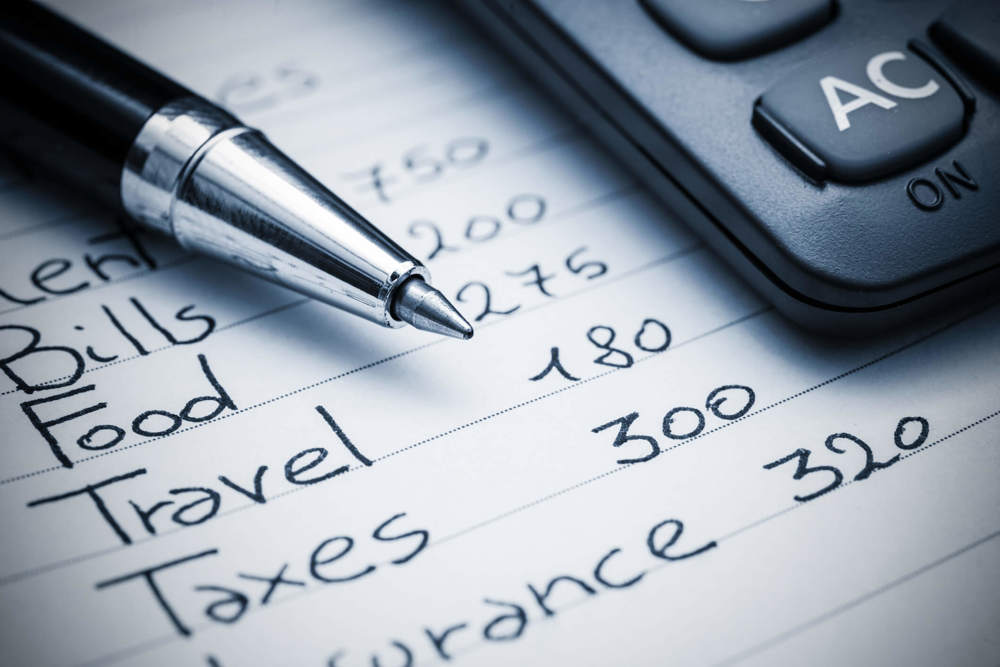There's no longer a default retirement age in the UK - and greater choice in taking early retirement at 62 or any age you choose. And now that you can take your pension at 55 because of the pension freedoms, you may be thinking about leaving the workforce early. But where do you even begin?
With careful planning and consideration, that dream could become a reality for you too. Our helpful guide will take you through early retirement planning steps and key things to consider as you weigh your options.
What does early retirement mean?
Many people see early retirement as an opportunity to say goodbye to the 9-to-5 a little sooner and enjoy unlimited leisure time. While others may see it as an opportunity to pursue a more fulfilling job. After all, retirement doesn't necessarily mean not working altogether.
The truth is early retirement is what you make of it. This could mean spending more quality time with the family or even starting your own business. So, the question is: what does early retirement mean to you?
How early can you access your pension?
You'll receive the State Pension when you reach State Pension age. Currently, this is age 66 for men and women, and it's set to increase to 67 between 2026 and 2028. Receiving the full basic State Pension means you'll have £137.60 in your pocket every week. You'll usually need 30 years of National Insurance contributions or credits to qualify for the full amount.
The age you can start taking your personal and workplace pension depends on your scheme's rules. For many schemes, this is usually after your 55th birthday. This age is set to increase to age 57 in 2028. If you joined your pension scheme before 6 April 2006, you might have the right to take your pension earlier. You can usually take up to 25% of your pension pot as a tax-free lump sum. Anything you take over this will be taxed.
You may also be able to access your money sooner to take early retirement if you're aged 75 and suffer from a serious illness. If you're expected to live less than a year and your pension savings are below the current £1,073,100 lifetime allowance, you may be able to take your whole pot as a tax-free lump sum.
If you think you might be eligible to take your pension early, check with your pension provider. The rules around when you can take your pension are complex and always changing. And depending on how flexible your scheme is, taking your pension income early can have a negative effect on your finances. Get professional advice to ensure you plan your early retirement wisely.

How does early retirement affect my pension?
As mentioned earlier, you'll need 30 qualifying years of NI contributions to get the full basic State Pension. Retiring early could mean you fall short of this requirement and receive less money per week. You can see how many years you have accrued by checking your National Insurance record on the government's website.
Cashing in your personal or workplace pension early puts you at risk of running out of money when you're retired. Another option is to take out a portion of your pension pot and keep saving into it. However, if you take more than the 25% tax-free lump sum, you may reduce the amount you can pay into your pension significantly under money purchase annual allowance rules.
Accessing your final salary pension is a little more difficult. These schemes usually have a set ‘normal retirement age', which will determine how early you can take your pension. Get in touch with your provider to find out when you're eligible.
Before accessing your pension, think carefully about how much money you actually need now. Always seek advice if you're unsure that you'll have enough money for retirement or how a withdrawal could affect your future income.
Is early retirement right for you?
Early retirement isn't right for everyone. And like any big decision, there are many advantages and disadvantages to consider. To help you decide if it's right for you, we've outlined the pros and cons of early retirement below.
Pros
- You have extra time to follow your passion - It could be time to live life on your own terms, by making a career change or starting your own business.
- More quality time with family and friends - The time you'd normally spend at work could be spent making memories and nurturing friendships.
- It might improve your health - The absence of work-related stress and better sleeping patterns could improve your wellbeing.
- You can be more active - Retiring earlier could give you the opportunity to enjoy yoga and other healthy lifestyle choices while you're still able.
Cons
- You'll have a reduced income - If you're used to a comfortable lifestyle, taking an earlier retirement means less money for luxuries if you don't budget.
- Your mental health could take a hit - Working life provides structure, social interaction, and a sense of purpose, and losing that could lead to depression and loneliness.
- Potential early withdrawal penalties - Some savings accounts charge penalties for early withdrawals.
- Your pension pot might run out - People are living longer and taking your pension funds earlier could mean missing out on chances for those funds to grow.
- The grass isn't always greener - If you realise that you miss the routine of work, it can be more difficult to return to the workforce as a mature employee.

Planning your early retirement
Lack of financial planning is one of the biggest detriments to early retirement. If you think the pros outweigh the cons, you'll need to crunch some numbers to see if early retirement could be achievable. Here are five key steps to help you get started with planning your early retirement.
Step 1: Eliminate your mortgage and other debts
Debt can seem scary, but it's something that many of us have in common. You might have a mortgage debt or a credit card. The good news is, you can still have debt without letting it take over your life.
Interest quickly adds up. Paying off your debts puts you in a better position to dedicate more funds towards your goal, rather than struggling to meet interest charges and minimum repayments. This method can take longer, but you'll reap great rewards knowing that you've tackled the biggest debt.
The debt avalanche method is a popular debt repayment strategy. This involves making minimum payments on all your debts, using any extra money towards the debt with the highest interest. The idea is that by chipping away at the larger debt, you can pay it off faster.
If you need extra motivation, consider the snowball method. Like the avalanche method, you'll make minimum payments but aim for eliminating your small debts. Frequent, quick wins can give you extra motivation to keep going until all your debts are paid off.
Making overpayments on your mortgage is another good strategy to eliminate debt - especially if you're on a fixed rate deal. This helps you pay off your mortgage sooner. All mortgages are different, so check to see if your provider has any restrictions on how much you can pay.
If you're unsure whether you can afford to make overpayments, or think remortgaging could help you get a better deal, speak to an adviser first.
Step 2: Work out your basic retirement budget
Understanding how much you spend on the bare essentials is the first step in creating your early retirement budget. These needs may evolve as you ease into retirement, so it's worth keeping in mind potential increases due to inflation and future care costs.
Grab a pen and paper or create a spreadsheet and note how much you currently spend on the following:
- Housing
- Transport
- Food and household goods
- Clothing
- Insurance
- Utilities
- Health
Now add up these figures. How much do you spend on the basics each month and year? Remember that this figure will change as you cut out or reduce your work hours.
Step 3: Calculate how much you'll spend on the extras
You've got a good idea of how much you might spend on the basics. Now it's time to think about how you'd like to spend your early retirement. Could your ideal retirement include exploring woodworking? Or maybe you'd like to do more travelling?
It's more difficult to work out your extra spending when you're not yet retired. But with a little research and time, you can paint a picture of what your future spending might look like.

Step 4: Predict your retirement costs
You should now have two figures. The first one tells you what a typical year could look like without any luxuries. The next step is adding these estimated figures together and multiplying them by the number of years you expect to spend in retirement.
For instance, if you decide to take early retirement at 55, you could potentially live well into your late 80s. This means you'll need to budget for at least 30 years.
Step 5: Figure out your income
Your personal pension and the State Pension can help you afford the basics. But if you're looking for extra security and freedom, it's wise to consider all your available options. Income could come from many places such as:
- Your savings, business and/or investments
- Your home through equity release or downsizing
- Your workplace, final salary or private pension
- Property you've sold, rent or let
Estimating your future income on a spreadsheet can help you keep track of potential sources of extra income. Not all will apply to you. You may also receive extra income at different stages of your retirement. For example, a new lodger could help boost your income if you don't want to downsize from your three-bedroom family home.
Once you've recorded all your potential sources of income, you should have a good idea of whether early retirement is achievable. If you're concerned that you won't be able to afford the retirement lifestyle you want or are unsure of how much to budget, speak to an adviser.
Funding your early retirement
We hope that these steps have helped you understand whether early retirement could work for you. Early retirement isn't an option for everyone and the steps noted above are only for guidance. Speak to an adviser if you're looking for advice that's tailored to your unique circumstances.
A financial adviser could support you to:
- Determine your retirement goals
- Identify and take advantage of available tax credits and benefits
- Form a sound retirement plan
- Plan ahead for care costs, illness and other unexpected expenses
- Understand the most realistic age you can retire
Let us connect you to an expert
You deserve to enjoy a carefree retirement. So, if you're keen to get expert help, we can help you get started. Our free service matches people all over the UK with local experts to help them plan their ideal retirements.
Simply tell us what type of financial advice you're looking for and we'll connect you with the adviser with the right expertise for your needs. We'll then arrange your free consultation where you can meet your expert and learn all about your early retirement options.
Ready to discover what your retirement could look like? Click the button below to match with your FCA-regulated expert.



